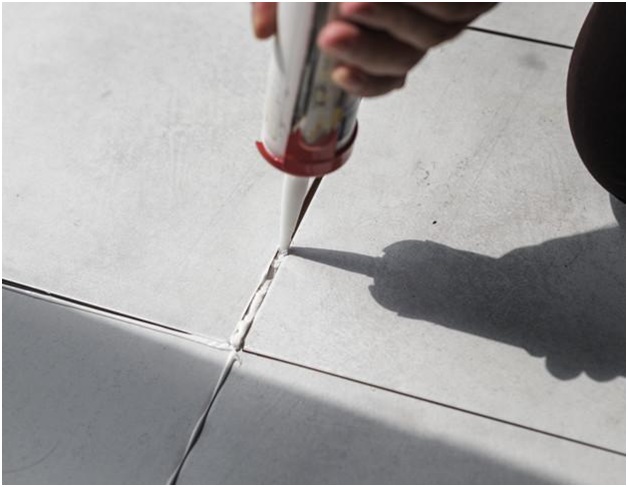When you are installing tiles, grouting is an important part of the process. Let’s take a look at the types of grout for bathrooms and kitchens.
Tiles are an incredibly popular flooring and walling material among many homeowners and it is not without reason. Compared to its alternatives, tiles come in a much wider variety of shapes and sizes and are also available in a wide variety of price points which make them ideal for all types of homeowners regardless of their budget. Tiles are also usually made to last for a while. In fact, if they are properly taken care of, they can last for a few decades at the very least. One of the things that must be done in order for the tiles to last this long of a time is to make sure that they are installed correctly and properly.

This is where grout comes in, it is an extremely important part of the whole tiling process. Grout is responsible for holding the tiles together, they also prevent water and moisture from sweeping into the many layers underneath. Moreover, it also does the job of forming a network surrounding the entire structure. What this does is that it keeps the tiles in their places and keeps them safe from potential damage, such as cracks. Just as tiles are very versatile, grout is also equally versatile and it is important to note here that there are certain types of grout available for certain types of tiles. Furthermore, grout can be manufactured from both naturally found materials, like sand or cement. It can also be made from synthetics like epoxy and polymers.
Grout is normally made by making a mixture of cement, water and sand. After it has been mixed, it is generally applied with a grout float. It can take up to one day to get dry and it may also need professional installation.
Here are some of the mostly used grouts in bathrooms.
Unsanded Grout
Grout of this variety is normally made by mixing sandless particles, water, and cement. Typically, very small grout lines are suitable for this variety of grout. The main reason behind this is the fact that unsanded grout shrinks after they have gone through the process of drying. If it is used in grout lines that are greater than an eighth of an inch, it will typically shrink to such an extent that the grout line will become exposed and will thus result in a grouting job which is very unsuccessful. Due to the fact that this variety of grout does not contain any sort of abrasive particles, they are excellent for natural stones like polished marble.
Sanded Grout
This grout is made of cement mortar, that has some sand in its composition. This variety of grout is very good for grout lines which are greater than ⅛ of an inch owing to the fact that there is no chance of getting shrunk and then destroying the whole grout job because of sand. Sand is also responsible for providing extra strength to the joints of the grouts. This makes the entire structure much more resistant to damage. This variety of grout is especially good for stone and ceramic tiles since they normally do tend to have bigger grout lines. Because this variety of grout has sand in it, it is very absorbent and will easily attract dirt. Owing to this factor, it would be wise to seal it once you are done grouting. The final thing to note, is to not use this variety of grout on tiles which are easily scratched, like marble.
Epoxy
This variety of grout is very often considered to be the de la creme of the grouting world due to the extraordinary strength, durability, and versetility of these grouts. This type of grout is made with the combination of hardener epoxy resins. As these types of grout are impermeable to moisture and liquids, sealing them may not be mandatory. It is especially good for spaces that tend to get wet, like bathrooms and kitchens.
Note that Epoxy should be applied right after the grout is made, because it has the potential to solidify very quickly after getting activated. If the area that you are grouting tends to be big, then you should divide the grout into two equal parts, and then proceed to stashing the second half inside your freezer. It will slow the reaction down, which will leave the grout pliable when it is out of your freezer. Epoxy grout is ideal for tiles that are non-patterned and need grout colors like the tile color.
Furan Grout
This variety of grout has a lot of resemblance with epoxy grout. The only difference is that Furan grout is composed of fortified alcohol polymers. This gives the property of being very resistant to any kind of damage. For industrial structures, furan grout is the top choice.




